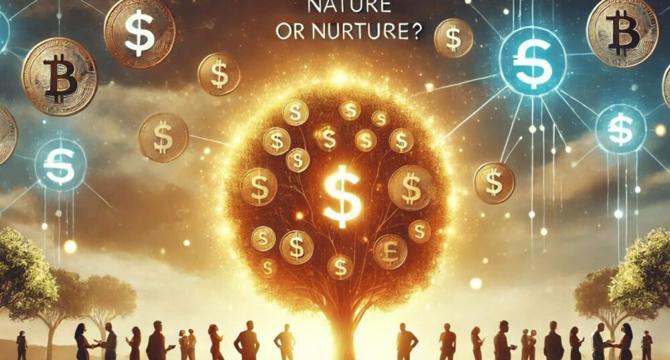TechBullion
3w
48

Image Credit: TechBullion
The Psychology of Giving: Nature or Nurture?
- The nature vs. nurture debate surrounding generosity raises the question of whether we are born generous or learn it.
- The evolutionary theory of "kin selection" suggests that acts of giving, especially to those who share our genes, help ensure the survival of our family line. Similarly, "reciprocal altruism" explains that generosity can create bonds and foster mutual support, promoting overall group survival.
- On a neurological level, research shows that giving triggers the brain's reward systems, particularly in areas related to pleasure, like the dopamine system. This "helper's high" reinforces altruistic behaviour, encouraging more acts of generosity over time.
- Personality traits also play a significant role. Some people may be genetically predisposed to be more empathetic or agreeable, which can increase their likelihood to give.
- Family upbringing is one of the strongest influences on giving behaviour, as children tend to mimic what they see. Cultural norms, societal expectations, economic conditions, and exposure to social issues also shape how people approach generosity.
- Education through schools and community programs teaches the practical side of giving and instils a sense of social responsibility, reinforcing the need for generosity as part of a well-rounded education.
- Research in epigenetics shows that the environment can influence the way certain genes related to empathy and altruism are expressed.
- UFANDAO.com and AidCoin are examples of innovative decentralised platforms providing ways to inspire generosity by providing transparency, traceability, and accountability for all kinds of donations. Their approach appeals to tech-savvy, impact-focused donors and has the potential to reverse the trend of declining donations.
- Providing a way for people to see exactly how their donations are used, innovative solutions like these help to nurture the spirit of philanthropy, solidarity and promote a sustainable future in charitable giving.
Read Full Article
2 Likes
For uninterrupted reading, download the app